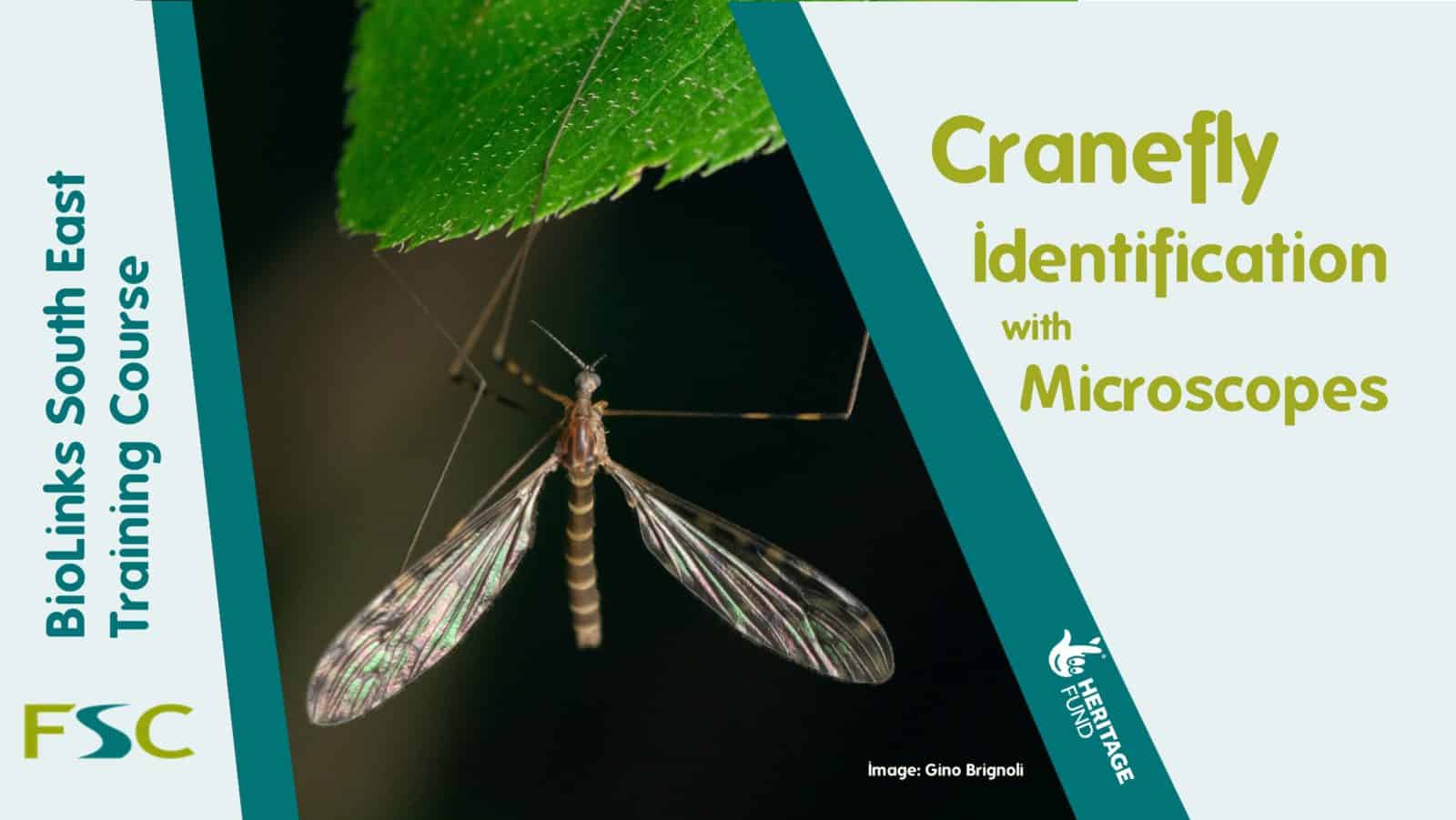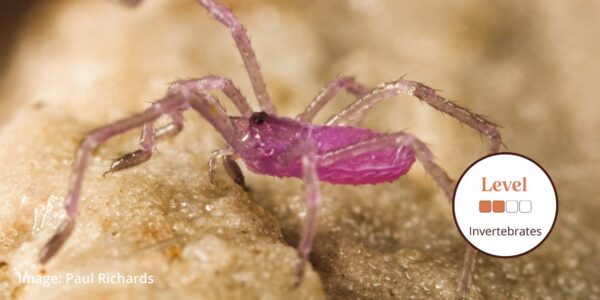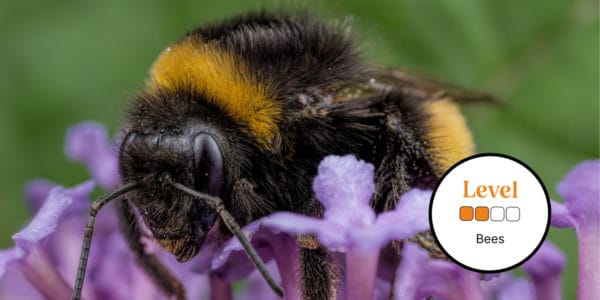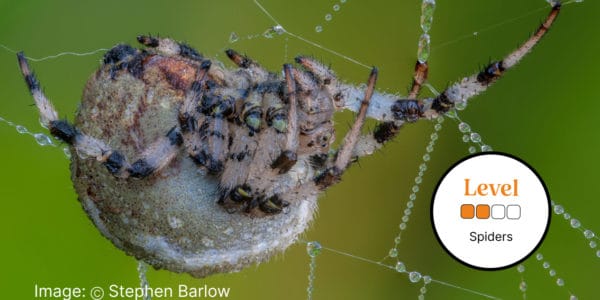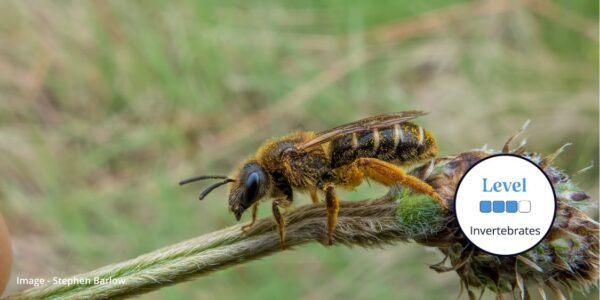There are around 350 cranefly species in the British Isles, many of which require microscopic examination in order to reliably identify to species. This course will take you to the next step, providing you with the skills you need to be able to start identifying craneflies to genus and species using a microscope.
This course provides an introduction to identifying craneflies to species. This includes a short presentation introducing the morphological features used to identify specimens to family level, followed by practical sessions guided by our expert tutor. During the lab sessions, you’ll explore a wide variety of different cranefly species, including both common and rare ones that can be trickier to find in the wild. This course will use the British Craneflies, by Alan Stubbs – copies will be available for use from our reference library.
Supported by the tutor, you will look at the palp length, eye hairs and wing markings and venation. For example, learners will be taught how to distinguish between different wing markings and venation, and will identify mystery specimens illustrating these different forms.
Through a combination of taught classroom content and lab-based practical sessions, learners will gain confidence in using the identification key and preserved specimens to identify craneflies to genus and species level.
- Certificate upon course completion.
- Please email [email protected] if you have any questions.
- Please note that this course will involve using specimens that have been killed and preserved.
This course is aimed at adults only and course attendees must be at least 18 years old in order to attend.
What will be covered during this course?
- The external (morphological) features used in cranefly identification
- How to work through a key to determine cranefly specimens accurately to family, genus and species level
- Practical experience observing cranefly ID features using a microscope
- No microscope experience is necessary – our tutors will set up and show you how to use a microscope
See the ‘Example Timetable’, ‘What’s Included’ and ‘Before You Attend’ sections below for more information about this course.
Course Fees
Regular Price: £75 For professionals and residents outside of the UK. Select ‘Attendee: In Person’ Sold Out
Subsidised Price: £10 Subsidised by the FSC BioLinks project for non-professionals eg. volunteers, biological recorders, wildlife gardeners, amateur naturalists and students. Available to UK residents only. Select ‘Attendee Subsidised: In Person’
Tutor: Peter Boardman
Pete first got into flies after volunteering with Liverpool Museum’s entomological department in the early 1990s, with support from Tom Mawdsley and Richard Underwood. He ‘discovered’ craneflies when county moth recorder for Shropshire and chose them as a dissertation subject for his MSc in the mid 2000s. Following this he committed to the group and immediately worked on a Shropshire distribution atlas (2007) and a second improved version with keys in 2016.
In 2018 he was awarded a Churchill Fellowship which enabled him to spend a month at the Smithsonian Institution collections in Washington DC studying the Charles Alexander collection. This enabled him to later name 23 new species to science from Cameroon.
He currently is national cranefly recorder for the Cranefly Recording Scheme supporting John Kramer and Alan Stubbs.
Covid Measures
In order to keep our customers and staff safe, we ask that anyone attending our centres:
- Wears a face covering when in shared indoor space (unless exempt).
- Maintains social distancing.
- Cleans their hands regularly.
- Takes a Covid-19 test before they arrive.
Book with Confidence
We understand the difficulties of making plans in the current situation when guidelines continue to change, and insurance conditions are being tightened. In response, we will continue to offer additional flexibility. Find out more here
Example Timetable
- Please arrive in time for the course to start promptly at 10:00 am.
- Refreshments will be available from 9.45 am.
- The course will end at 4:00 pm.
What's Included
- 6 hours of tuition.
- Certificate of attendance.
- Access to a microscope, identification resources and specimens.
Bursaries and Subsidies
FSC BioLinks
FSC BioLinks is an exciting project for FSC in the South East and West Midlands, bringing together existing volunteers with skills in biological recording and identification, and new volunteers.
This project provides subsidised training courses, learning opportunities and digital tools focussed on invertebrate identification for anyone involved or interested in biological recording, to build and strengthen the community.
Invertebrates provide us with many useful ecosystem services, like pollination and decomposition, which we cannot survive without but their numbers are declining. Few people know how to identify or record invertebrates meaning there is a lack of data.
We are delighted to have been awarded a grant of £1.23 million from the National Lottery Heritage Fund for this project.
Before You Attend
Getting to FSC London: Bushy Park
Information on getting to the site can be found here.
When you arrive at The Stockyard gate you may need to call the centre to open the gate. You can reach the staff on site on 020 8941 4398.
What to bring
- Notebook and pencil
- Lunch
- Any specimens that you'd like verified (tutor availability during the course permitting)
Please note that this course will involve using specimens that have been killed and preserved.
There will be a member of staff with first aid training and access to a first aid kit on site. If you have special medical requirements please let us know as soon as possible so we can plan the course.
Sorry this course has ended

